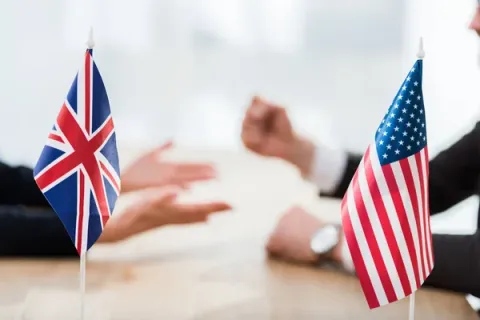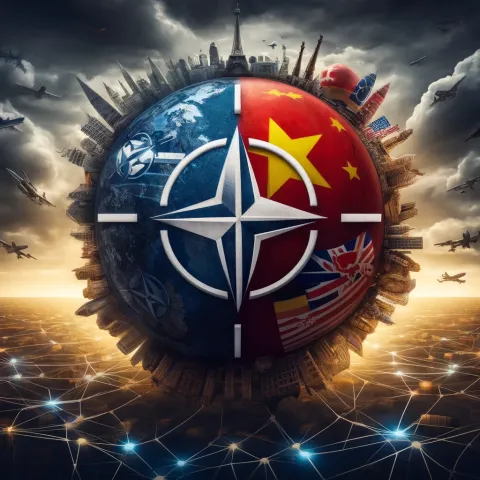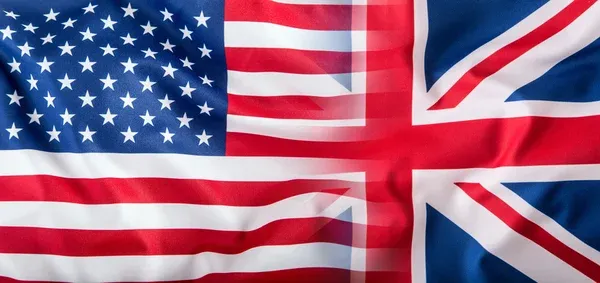United Kingdom and the United States in the new world order. Allies or rivals?
As the world enters 2025, the global landscape is undergoing significant transformations, prompting a reassessment of international alliances and strategies. The longstanding "special relationship" between the United Kingdom and the United States, once a cornerstone of Western diplomacy, now faces unprecedented challenges.
Shifting geopolitical interests and emerging global dynamics compel both nations to reconsider their positions on the world stage.
Historical Ties and Emerging Challenges
Historically, the UK and the US have shared a robust partnership, grounded in common values, cultural ties, and mutual strategic interests. This alliance has been pivotal in addressing global conflicts, promoting democratic ideals, and fostering economic cooperation.

However, the evolving international order, characterised by the rise of new powers and shifting economic centres, necessitates a re-evaluation of this relationship. The growing influence of China as an economic powerhouse, coupled with the increasing assertiveness of nations such as India and Brazil, is reshaping the traditional balance of power.
Both the UK and the US find themselves grappling with these shifts, albeit in ways that reflect their differing priorities.
Diverging Priorities and Policies
One of the primary factors influencing this reassessment is the divergence in geopolitical priorities. The United States, under its current administration, has adopted a more isolationist stance, focusing on domestic issues and redefining its foreign policy objectives.
This shift includes a reassessment of commitments to international alliances and a more transactional approach to diplomacy. In contrast, the United Kingdom, post-Brexit, seeks to redefine its global role, aiming to establish itself as a sovereign power with independent trade and foreign policies. This ambition is evident in initiatives like the "Global Britain" strategy, which aspires to expand the UK's influence beyond Europe.

For example, Britain's focus on strengthening ties with the Indo-Pacific region, including trade agreements with Australia and Japan, highlights its determination to carve a new path. The potential cooling of UK-US relations is further exemplified by differing approaches to key international issues. For instance, the UK's commitment to climate change initiatives contrasts with the US's fluctuating stance on environmental policies.
Additionally, the UK's efforts to strengthen ties with China, particularly in trade and investment, may conflict with the US's more confrontational approach towards Beijing. These disparities highlight the growing divergence in their foreign policy agendas.
A notable example is the Huawei controversy, where the UK initially allowed limited participation of the Chinese tech giant in its 5G networks, triggering sharp criticism from Washington.
This disagreement underscores the challenges of balancing economic interests with security concerns. Moreover, economic interests are increasingly leading both nations down separate paths. The UK's pursuit of new trade agreements, including potential deals with countries that may not align with US interests, underscores its desire for economic independence.
Simultaneously, the US's focus on reshoring industries and prioritising domestic economic growth may reduce its engagement in international economic partnerships, including those with the UK. For instance, the US's Inflation Reduction Act has placed significant emphasis on domestic energy production and green technology, inadvertently creating friction with allies who see it as protectionist.
In this context, the United Kingdom faces a pivotal decision: how to navigate its future in a rapidly changing world order. The aspiration to reclaim a position of global prominence requires strategic foresight and adept political leadership.
However, the current political landscape lacks figures of the calibre of Winston Churchill, whose vision and statesmanship guided the nation through tumultuous times. The absence of such leadership raises concerns about the UK's capacity to adapt and thrive amidst global uncertainties. Public debates often reflect this sentiment, with critics pointing out a perceived lack of long-term planning and strategic vision within the British establishment.
The path forward presents a dichotomy. On one hand, there is the risk of decline, characterised by diminished global influence and economic stagnation. On the other, there lies an opportunity for resurgence, contingent upon the emergence of visionary leadership capable of steering the nation towards renewed prominence.
This potential renaissance would require a commitment to innovation, strategic alliances, and a clear articulation of the UK's role in the global arena. Britain's past as a maritime and industrial powerhouse offers a reminder of its ability to adapt and thrive, but realising this potential will require more than nostalgia—it demands action.
Future Prospects for the UK
The evolving dynamics between the United Kingdom and the United States reflect broader shifts in the international order. While historical ties bind the two nations, divergent interests and priorities may redefine their relationship from steadfast allies to strategic competitors.
The UK's future trajectory hinges on its ability to adapt to these changes, necessitating astute political leadership and a coherent vision for its role in the world.
Whether the nation will succumb to the challenges of the new era or seize the opportunity for revitalisation remains to be seen, but the clock is ticking, and the world is watching.


